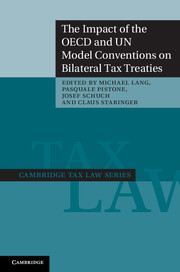Book contents
- Frontmatter
- Contents
- Contributors
- Preface
- Table of cases
- Table of statutes
- General report
- 1 Argentina
- 2 Australia
- 3 Austria
- 4 Belgium
- 5 Brazil
- 6 Canada
- 7 Chile
- 8 China
- 9 Colombia
- 10 Croatia
- 11 The Czech Republic
- 12 Estonia
- 13 Finland
- 14 France
- 15 Germany
- 16 Hong Kong
- 17 Hungary
- 18 India
- 19 Italy
- 20 Lebanon
- 21 Liechtenstein
- 22 The Netherlands
- 23 New Zealand
- 24 Norway
- 25 Peru
- 26 Poland
- 27 Portugal
- 28 Romania
- 29 The Russian Federation
- 30 Serbia
- 31 Slovakia
- 32 Slovenia
- 33 Spain
- 34 Sweden
- 35 Uganda
- 36 The UK
- 37 The USA
- Index
- References
4 - Belgium
Published online by Cambridge University Press: 05 November 2014
- Frontmatter
- Contents
- Contributors
- Preface
- Table of cases
- Table of statutes
- General report
- 1 Argentina
- 2 Australia
- 3 Austria
- 4 Belgium
- 5 Brazil
- 6 Canada
- 7 Chile
- 8 China
- 9 Colombia
- 10 Croatia
- 11 The Czech Republic
- 12 Estonia
- 13 Finland
- 14 France
- 15 Germany
- 16 Hong Kong
- 17 Hungary
- 18 India
- 19 Italy
- 20 Lebanon
- 21 Liechtenstein
- 22 The Netherlands
- 23 New Zealand
- 24 Norway
- 25 Peru
- 26 Poland
- 27 Portugal
- 28 Romania
- 29 The Russian Federation
- 30 Serbia
- 31 Slovakia
- 32 Slovenia
- 33 Spain
- 34 Sweden
- 35 Uganda
- 36 The UK
- 37 The USA
- Index
- References
Summary
The relevance of the OECD and UN Model Conventions and their Commentaries for the interpretation of Belgian tax treaties
Introduction
Relatively few cases relating to cross-border situations are submitted to the courts in Belgium. Being a small country with close neighbours, one may suppose that questions and difficulties are mostly resolved through negotiations with the tax authorities.
Belgium has a large treaty network, which increases annually; the first double tax agreement in the field of income taxes was signed in the 1930s. To date, Belgium has a treaty network covering almost ninety countries (not including the exchange of information agreements). Moreover, it has signed double tax conventions (not yet in force) with a dozen countries and has entered into negotiations with around thirty.
The power to conclude (tax) treaties belongs to the king, while according to the principle of legality, the tax law has to be decided by the Parliament. Treaties must be approved by the Parliament; however, it has no power of amendment of a treaty that has been negotiated and signed by the king; it could only refuse its approval, which is not sufficient to have a significant impact on the framing of Belgium’s international tax policy.
Despite the minor role played by Parliament in this matter, there seems to be a consensus on the general guidelines regarding the international tax policy of Belgium when concluding treaties, amongst which is the need to increase the attractiveness of the country for foreign investors by eliminating tax obstacles to cross-border entrepreneurship and to guarantee the competitiveness of Belgian enterprises investing abroad. Consequently, Belgium as a rule favours the exemption method for its capital export neutrality.
- Type
- Chapter
- Information
- Publisher: Cambridge University PressPrint publication year: 2012

